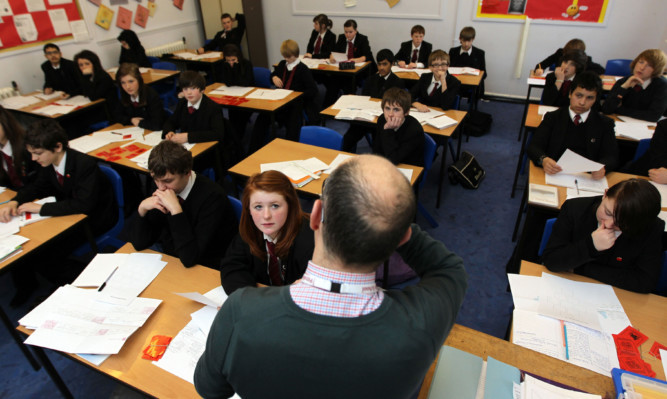Scotland’s largest teaching union has warned ministers it will hold a ballot on industrial action if a new group fails to deliver “lasting reductions” in workload for secondary teachers.
Education Secretary Angela Constance announced last week an expert group would be established to look at how to reduce staff workloads and stress in the wake of Curriculum for Excellence reforms.
The EIS union said while it hoped this would succeed, the group – which will be chaired by learning minister Alasdair Allan – was “working to a very ambitious timescale”.
The group will report its initial recommendations in March, in time for the 2016-17 academic year.
General secretary Larry Flanagan said should this “fail to deliver the lasting reductions in workload and bureaucracy that our members are demanding”, the executive group of the EIS now backed formally balloting secondary-school teachers over industrial action.
An indicative ballot by the union found 93% of EIS members would be willing to take some kind of action over “excessive and unsustainable” workloads.
The issue arose after National 4 and 5 Qualifications were brought in to replace the old Standard Grades in 2014, with schools given the option to phase in new Higher exams last year.
Mr Flanagan said: “The EIS was encouraged to hear that the Scottish Government is taking the concerns of secondary teachers seriously and that it will establish a ministerial working group to look at action that can be taken to cut excessive qualifications-related workload.
“This is a positive step and we look forward to active and positive engagement with the working group as it looks to deliver meaningful reductions in qualifications-related bureaucracy and the workload of secondary teachers.
“Although we hope for a successful resolution and an agreement to cutting workload through the expert group, the EIS executive has now given its approval in principle to a move to a statutory industrial action ballot related to qualifications workload.
“The expert group will be working to a very ambitious timescale and the EIS will do everything possible to support the work of the group in order to deliver a workable agreement on cutting teacher workload.
“However, should the working group fail to deliver the lasting reductions in workload and bureaucracy that our members are demanding, the EIS executive has given its consent for a move to a formal industrial action ballot in the secondary sector.”
